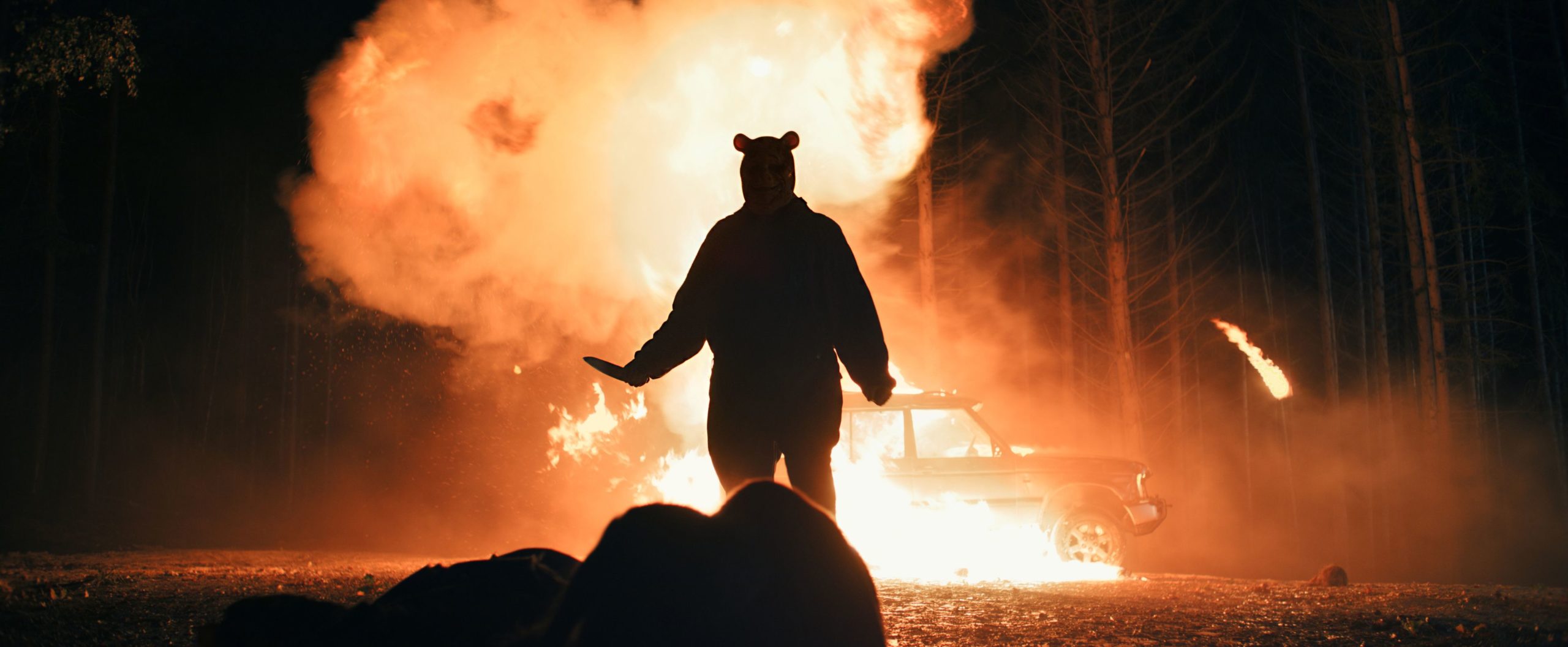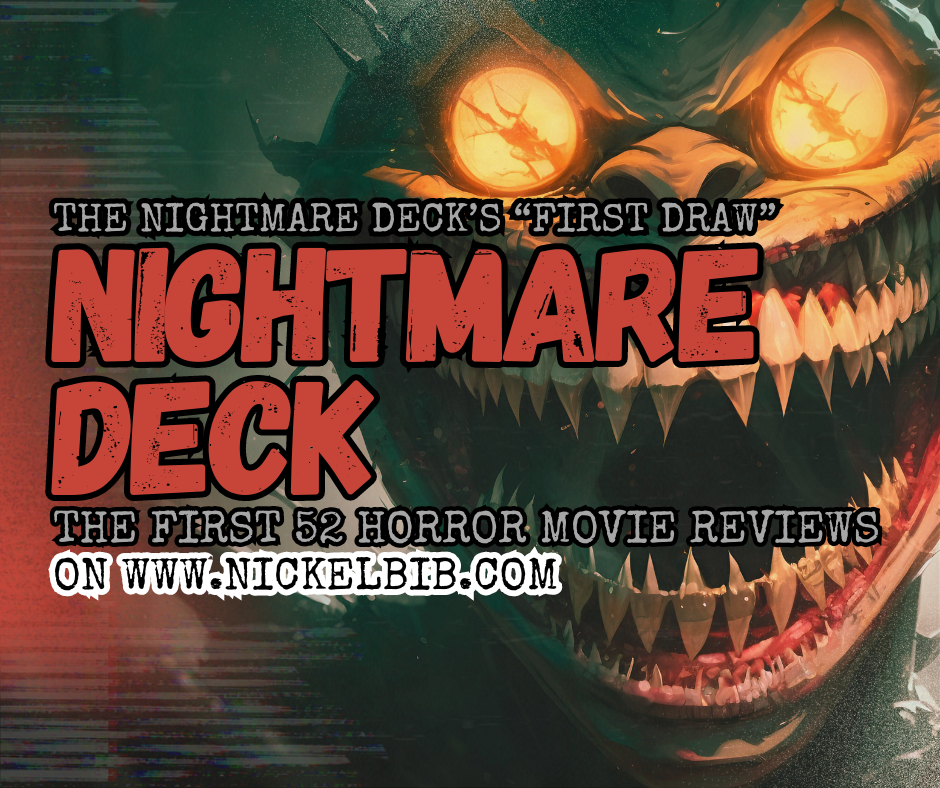In a previous edition of Taking a Stab Tuesdays, I went back and reviewed Rob Zombie’s debut film House of 1,000 Corpses. Although the film wasn’t without its ambition and intrigue, its placement on “The List” left a lot to be desired. Rob Zombie wears his influences on his sleeve with nearly every film he has ever directed. The successful musician turned successful moviemaker is certainly hit-and-miss, but his love of the craft and directorial prowess has seen him develop studio horror fare like Halloween (and Halloween II) and fan-funded mayhem like 31. At his best, I think he’s a skilled filmmaker who needs discipline to further hone his craft, a filter to trim the fat and better highlight his vision. In my opinion, Rob Zombie is very much like a modern Tobe Hooper, a comparison I have no doubts would flatter Rob Zombie, but comes with its own baggage. Hooper directed The Texas Chainsaw Massacre and Poltergeist (with a likely assist from Steven Spielberg), but Hooper also directed Toolbox Murders and The Funhouse, films that I think are parallel to a lot of what Rob Zombie has directed in recent years. Rob Zombie’s last film 31 wasn’t stab-my-eyes-out-awful, but it felt like a wonderful concept squandered, and like Zombie’s best genre efforts might have rode off in the sunset (in the back of his Dragula).
3 from Hell sees Rob Zombie follow-up House of 1,000 Corpses and The Devil’s Rejects. I haven’t reviewed The Devil’s Rejects yet on Mashers Club, but I’ve always heralded it as Zombie’s best directorial effort and an example for what I believe he’s capable of. When I watched The Devil’s Rejects, I believed it concluded its duology in decisive fashion. After all, our Rejects were riddled with bullets, sung out by “Free Bird,” and everything. However, it would seem Rob Zombie didn’t agree with that.
How are The Devil’s Rejects alive? Did Dr. Satan from Corpses return and commit “voodoo magic” in-order to resuscitate them? Did the Devil literally spit them back out from Hell? The latter explanation is a poetic interpretation and the most accurate – the Devil’s Rejects survived having their bodies turned into Swiss cheese because they survived. No other explanation. They’re alive and that’s that.
3 from Hell acts as the final film with Sid Haig released in his lifetime, which instills a melancholy aura to his role given how little we see of him in the film and his character’s payoff. The film received mixed-to-negative reviews from critics and moviegoers but was able to make over 2 million from a three-day limited theatrical release, a far-cry from its predecessor, but Zombie’s best theatrical haul since 2009’s Halloween.
The film follows Otis, Baby, and Captain Spaulding after surviving the heinous shootout with the police and sees them found guilty and each sentenced to life in prison. Otis manages to escape from prison, reuniting with his half-brother Winslow Coltrane and sets his sights on trying to emancipate Baby from her confinement. Winslow, ultimately, plays the role that would’ve been meant for Spaulding had the actor’s health not sadly diminished.
A lot of the major criticisms surrounding 3 from Hell that you might’ve come across have to deal with an existential merit; of whether 3 from Hell needed to exist. If you’re a fan of The Devil’s Rejects and wanted more from the characters, then, you’ll be at the front-and-center, heralding its value. I enjoyed The Devil’s Rejects, but I felt that the storybook had closed. However, after a string of disappointments, I also wanted something from Zombie I knew he could do well. Unfortunately, 3 from Hell did not need to exist, offering no substantial continuance of its character’s respective journeys and, in-fact, feels unable to offer even the bare minimum of an entertaining, fan-service horror.
The film is brimming with parallels and callbacks – (1) a driving scene involving Otis, Baby, and … Winslow harkens back to the Tutti Fruity scene in The Devil’s Rejections that has managed to earworm in so many people’s heads. (2) A scene involving a family, the “Rejects,” and law-enforcement manages to parallel not only the hotel scene from Devil Rejects, but also the “I Remember You” shootout from House of 1,000 Corpses, donning its own old-timey classical song to boot. Even the film’s payoff induces a feeling of déjà vu.
These hoots and hollers reminiscing “what was” aren’t enough to disguise “what is”, however. Every scene feels like a soda gone flat. The storyline feels disjointed and superfluous, a wedged together narrative that feels contrived, bolstered by characters that now feel like performances. Rob Zombie receives a lot of flack for casting his wife Sherri Moon Zombie in so many of his features. It has never bothered me very much until this film. Obviously, she is a key player in the series altogether, but the character was hammed up to an epic scale on this film. As for the rest of the characters, I don’t find myself singling out any particular character – the whole film feels like actors in outgrown wardrobes and Bill Moseley and company aren’t offered the opportunity to sink their teeth into anything in this sleazy shlock.
The film is haphazardly paced. I had a feeling of conclusion about sixty minutes in only to discover another hour awaited.
A lot of the film maintains the trademark “musk” of Rob Zombie, whether it’s displayed through the stylized cinematography (which I generally enjoy) or the choice in music (which I also generally enjoy), and the characters and their meanness are maintained. It merely doesn’t feel like it has anything new to say for itself and when it repeats its series’ greatest hits, I don’t feel the heart anymore.
3 from Hell might be a technical improvement from House of 1,000 Corpses, but at least I could feel the ambition and vision in that film. This film, on the other hand, I feel numb to.






GIPHY App Key not set. Please check settings